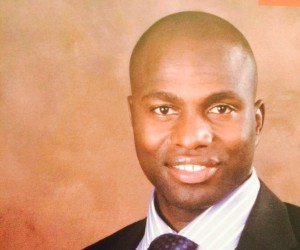With its initial inception and subsequent launch in 2009, the Moses Kotane Institute (MKI) envisioned a more efficient and sustainable road to service delivery, economic growth and the development of tomorrow’s leaders through science, technology, engineering and mathematics (STEM).
Focusing primarily on youth from the KwaZulu-Natal (KZN) province, the institute has set out to produce what it calls a world-class environment and has up to date successfully trained graduates in the STEM model, with a significant number of previously disadvantaged youth benefiting through scholarships, study grants and collaborations with various institutions locally and abroad.
The Chairperson of the MKI Board of Directors and De Beers Head of External and Corporate Affairs, Sakhile Ngcobo, shares some insights about the importance of the STEM model and MKI’s activities, in an exclusive interview with Achiever.“It was not by default that MKI found itself with such a great team of men and women who make up the MKI Board of Directors”. This is according to Ngcobo, who has been on the journey with MKI since 2011.
Today, Ngcobo’s primary function as Chairperson is to advise, manage and provide leadership to the team.Being solely funded by the KZN government, under the auspices of the Department of Economic Development, Tourism and Environmental Affairs, MKI beneficiaries are currently exclusive to KZN, with a particular bias toward rural communities.
With plans to collaborate with other provinces, the importance of empowering youth through the STEM model extends beyond the students and encompasses a lifelong learning model focused on educator professional development.
“The focus of MKI on the youth is necessitated by the need for specialised skills in the areas of STEM, whether at further or higher education level. Hence our mission speaks of developing well-rounded graduates in our quest to build leaders in STEM. It is therefore an investment in the youth for the future. However, the founding document makes reference to educator professional development and lifelong learning as a means of transforming communities to become learning communities.
An issue of critical concern to South Africa is the training of technology teachers, who are capable of working together to better prepare the youth for their transition from high schools to tertiary institutions.
“Professional development of teachers in areas of STEM is a crucial first step toward elevating teaching and learning. The same is true for out-of-school youth development, which aims to develop critical skills that would lead to the acquisition of job opportunities and entrepreneurship,” Ngcobo says.
According to the MKI mission declaration, “It is the broad aim of the institute, therefore, to contribute to a people-centred economic development. MKI sees this development achievable through a service delivery system led by technically skilled South Africans, who have a clear understanding of our political history – a history which has been characterised by poor skills and underdevelopment among the majority of South Africans.”
Following this statement, the promotion of mathematics and science is a vital aspect of empowering youth in this much-needed field. Ngcobo refers to a quote from former Science and Technology Minister, Derek Hanekom: “Mathematics is the spinal cord of science, engineering and technology development, and as such it is critical to South Africa’s national system of innovation and to our future as a competitive, knowledge-based economy.”
He mentions that this ties in with the country’s National Development Plan (NDP), which places great importance on improving mathematics education from primary school to tertiary education. For this reason, MKI has embarked on a number of programmes aimed at students from both age groups.
“This is a critical focus area that the MKI has identified and has begun to explore through its academic development programmes, especially from Grades 10 to 12. MKI is also beginning to think around a pilot project at primary school, focusing on promoting science at an early age.
Countries such as Korea, Japan, India and China are successful today because they recognised the importance of promoting maths and science as early as primary school. They are leaders today in the fields of science and technology,” he says.
This aim ties in directly with what MKI’s founding fathers, Dr Zweli Mkhize, Dr Nqaba Ngcobo and Dr Phil Mjwara, had in mind regarding STEM’s contribution to economic growth and sustainability. Ngcobo says for South Africa to achieve and maintain a 6% plus growth in its economy, it requires significant investment in science education and skills that will ensure a grounded human capital in areas of science, engineering technology and mathematics.
“This is not only important for South Africa, but also for the African continent. If the continent is able to produce about 60 000 engineers a year while continents such as Europe and Asia produce more than 100 000 a year, it does not bode well for the future of projects such as infrastructure development, ICT, maritime, nuclear energy, green economy, to mention but a few.
Local governments, for example, require between 800 and 1 200 engineers, technologists, technicians and artisans. These can only be acquired once South Africa confronts the serious shortage of skills in STEM head-on.
“South Africa needs to ensure the students hoping to study or currently studying science, technology, engineering and mathematics begin to understand the need, impact and philosophy of science and that they appreciate its contribution to the economy of our country. The MKI has recognised this gap and has begun a journey through its five programmes,” says Ngcobo.
Referring to some of MKI’s successes, Ngcobo mentions that, “Our brightest stars are our learners – our high school kids have excelled beyond our expectations.” These achievers are beneficiaries of a three-year funding cycle and went on to achieve remarkable results in their matric finals. “It is particularly rewarding and fulfilling because these learners would not have naturally done so well if MKI had not identified them from the disenabling environments that hindered excellence,” he says.
Ngcobo mentions, however, that MKI does not necessarily have its own graduates, but rather students who are funded at various universities in pursuit of STEM-related fields. He says that this year, MKI will have 56 students graduating from the University of KwaZulu-Natal in the Faculty of Science and Agriculture.
He further says MKI has trained and helped more than 50 out-of-school youth to get their international skipper’s licence this year. This will contribute immensely to maritime dam tourism in respect to local economic development. “These entrepreneurs will be able to charter boats armed with an international qualification.”
In 2014 we will see the institute actively involved in supporting students in the placement process. Ngcobo gives the example of 406 successful placements across the Software Engineering and Business Process Outsourcing fields.
MKI is also involved in a number of advantageous partnerships. These include Microsoft South Africa, the NEMISA Institute, FET Colleges and the Universal Service and Access Agency of South Africa (USAASA).
MKI will be working wit Microsoft SA, engaging with the ICT industry to ensure all training programmes directly respond to the skills needed by the industry in order to enhance employability of the graduates.
“MKI is also planning to partner with Samsung to establish Digital Hubs in previously disadvantaged communities in order to accelerate accessibility to world-class maths and science content. The Digital Hub will have an e-learning centre, community digital access centre and an ICT skills training facility.
MKI has also established an internationally accredited Microsoft IT Training Academy to provide our youth with IT training that is fully recognised by the industry,” according to Ngcobo.
Looking at the road ahead, MKI’s plans for expansion to other provinces are tied in with its national mandate. “MKI will, in its new strategic focus, expand its programmes to other provinces.
Moses Kotane Institute is proud to have secured substantial grant funding from the Transport Education Training Authority (TETA) and a subsequent SLA. For example, the MKI and TETA have signed a partnership agreement on various transport-related projects, especially on maritime interventions. These projects will be implemented nationally and this will begin a national footprint,” he concludes.






